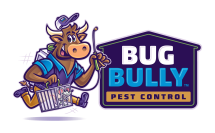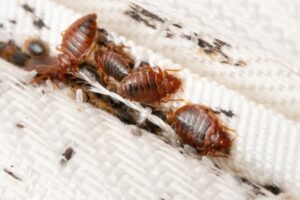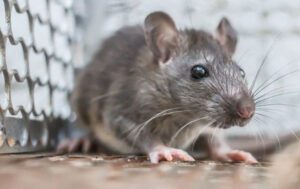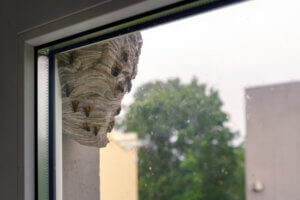At Bug Bully Rodent & Pest Control, we know that seeing a trail of ants inside your kitchen or dining area can quickly turn from a small nuisance into a big concern. Ant infestations are a year-round issue in Worcester, Framingham, Northborough, Concord, and the rest of Central Massachusetts. While ants play an important role in the environment, they can cause serious problems when they invade homes, apartments, or restaurants.
Different ant species have different habits, nesting preferences, and diets. That means the right approach to ant control depends on correctly identifying the type of ant you are dealing with. In this guide, we explain the most common ant species in the region, how they behave, and what you can do to keep them from becoming permanent guests in your property.
Carpenter Ants
Carpenter ants are among the largest ant species found in Massachusetts, measuring from a quarter inch to a full half inch in length. They are typically black, although some have reddish or dark brown coloring. Unlike termites, carpenter ants do not eat wood, but they do excavate it to build their nests. Over time, this can cause structural damage, especially if the infestation goes unnoticed.
Carpenter ants prefer damp or decaying wood, which makes them common in homes and restaurants that have leaks, poor ventilation, or older wooden structures. You might see them foraging for food at night, often traveling in lines along baseboards or walls. While they do eat insects, they are also drawn to sweets, meats, and grease, which means a restaurant kitchen can be particularly attractive.
The telltale sign of carpenter ants is the sawdust-like material called frass, which they push out of their tunnels. If you see frass near windowsills, door frames, or basement beams, it is time to call an ant exterminator before the damage worsens.
Pavement Ants
Pavement ants are smaller than carpenter ants, typically about an eighth of an inch long, with brown to black bodies and pale legs. True to their name, they often nest under sidewalks, driveways, and building foundations. In residential neighborhoods and restaurant districts, pavement ants frequently find their way indoors, especially during rainy weather or when searching for food.
These ants have a varied diet, eating everything from crumbs to pet food to grease. Pavement ants can become a persistent issue in restaurants, where even a small spill or crumb can serve as a food source. They also tend to invade in large numbers, which makes their presence more obvious and alarming.
Inside, pavement ants can be found along baseboards, in cracks in the floor, or behind kitchen appliances. Their colonies can be challenging to eliminate without professional ant control because they often have multiple nesting sites.
Odorous House Ants
Odorous house ants get their name from the unpleasant smell they release when crushed, often compared to rotten coconut. These ants are about one-sixteenth to one-eighth of an inch long, with brown or black bodies. They are one of the most common household ants in Worcester and surrounding areas.
Odorous house ants are highly adaptable and can nest in a wide range of locations, from soil and mulch outside to wall voids and under floors inside. They are particularly attracted to sugary foods but will also eat proteins and greasy items. This makes them a frequent problem in both homes and restaurants, especially if food storage is not fully sealed.
Because odorous house ants have multiple queens and satellite colonies, they can be challenging to eradicate. If part of a colony survives a DIY treatment, they can quickly rebuild their numbers.
Pharaoh Ants
Pharaoh ants are tiny, only about one-sixteenth of an inch long, with pale yellow to reddish bodies and darker abdomens. Despite their small size, they can cause big problems, especially in restaurants, hospitals, and apartment buildings. These ants are known for nesting in hidden, warm, and humid areas such as wall voids, behind baseboards, and inside appliances.
Pharaoh ants are particularly troublesome because they can spread pathogens and contaminate food. Their colonies are large and complex, often splitting into multiple nests when disturbed. This behavior, called budding, makes improper treatments worse by causing the infestation to spread to new areas.
Because of their health risks and ability to multiply quickly, pharaoh ant infestations should be handled by a professional ant exterminator with experience in treating sensitive environments like kitchens and food storage areas.
Thief Ants
Thief ants, also known as grease ants, are some of the smallest ants found in Massachusetts, measuring just one-sixteenth of an inch in length. They are pale yellow to light brown and often mistaken for pharaoh ants. Their name comes from their habit of nesting close to other ant colonies and stealing their food and larvae.
Inside buildings, thief ants prefer high-protein and greasy foods, making them a persistent problem in kitchens. Because they are so small, they can easily enter packaged food and contaminate it without being noticed right away.
Thief ants can be difficult to control because they build their nests in hidden, hard-to-reach locations, including behind walls, inside cabinets, or beneath floorboards. For restaurant owners, this species can be particularly damaging to reputation if spotted by customers.
Field Ants
Field ants are larger ants that can be confused with carpenter ants, but they do not nest in wood. Instead, they build their nests outdoors in soil, often creating large mounds in lawns, gardens, or along property edges. They can be red, black, or a combination of both.
While field ants typically remain outdoors, they can occasionally enter buildings in search of food. They are more of a nuisance than a structural threat, but their large outdoor mounds can damage landscaping and make outdoor dining areas less appealing for customers.
Homeowners and restaurant owners with outdoor seating should monitor for field ant activity, especially during warmer months when these ants are most active.
Acrobat Ants
Acrobat ants are small to medium-sized ants with a distinctive heart-shaped abdomen that they can raise over their thorax when threatened. They are usually light brown to black. Acrobat ants prefer to nest in damp or decaying wood, similar to carpenter ants, but they also occupy old termite galleries and insulation.
These ants can bite when disturbed, and while they are not dangerous, their bites can be unpleasant. Indoors, acrobat ants are often found near moisture-damaged areas, such as under sinks or in wall voids with plumbing leaks. Outdoors, they may nest under rocks, logs, or mulch.
The presence of acrobat ants indoors can be a sign of underlying moisture problems, which should be addressed along with ant control efforts.
Why Ants Invade Properties in Worcester and Surrounding Areas
Central Massachusetts experiences a range of weather conditions, from hot and humid summers to cold winters. These temperature fluctuations drive ants indoors in search of warmth, shelter, and food. Restaurants with frequent deliveries, open garbage bins, and bustling kitchens offer ample opportunities for ants to find what they need.
In homes and apartments, ants are often drawn to pantries, pet food bowls, and even bathrooms if moisture is present. Once they establish a trail to a reliable food source, they leave behind a chemical pheromone that guides other ants to the location. This is why ant infestations can grow quickly and why wiping away a trail without addressing the nest does not solve the problem.
Common Questions About Ant Control
Many homeowners and restaurant owners ask how to tell if they have an ant infestation versus just a few stray ants. The answer lies in the frequency and location of sightings. If you see ants repeatedly in the same area, especially near food or moisture, there is likely a nest nearby.
Another common question is whether store-bought sprays work. While sprays can kill visible ants, they rarely reach the hidden nest. In some cases, they can even cause the colony to split, leading to more ants over time.
People also wonder if ants are dangerous. While most ants in Massachusetts are not harmful to humans, species like carpenter ants can damage structures, and pharaoh ants can contaminate food and spread bacteria. Even nuisance ants can hurt a restaurant’s reputation if customers see them.
How Bug Bully Rodent & Pest Control Can Help
At Bug Bully Rodent & Pest Control, we take a targeted approach to ant control. We begin with a thorough inspection to identify the species, locate the nest, and understand the conditions that allowed the ants to enter in the first place. Our treatments are designed to address the entire colony rather than just the ants you see.
We also provide practical advice to prevent future infestations, such as sealing entry points, improving food storage, and addressing moisture issues. For restaurants, we offer discreet service options to minimize disruption to business operations and protect your reputation.
Whether you are in Worcester, Framingham, Northborough, or Concord, our goal is to help you reclaim your property from ants and keep them from coming back.
Preventing Ant Problems Before They Start
The best way to avoid an ant infestation is to make your property less attractive to them. This means cleaning up crumbs promptly, storing food in sealed containers, and taking out garbage regularly. Outdoors, trimming vegetation away from buildings and keeping mulch a few inches from the foundation can reduce ant access points.
Addressing moisture problems is also key, since many ant species prefer damp environments. Fixing leaks, improving ventilation, and replacing water-damaged wood can make a big difference. While these steps can help, it is important to remember that even the most meticulous property owner can still face an ant problem, especially during certain times of the year.
The Takeaway for Homeowners and Restaurant Owners
Understanding the types of ants in Central Massachusetts is the first step in effective prevention and control. Carpenter ants, pavement ants, odorous house ants, pharaoh ants, thief ants, field ants, and acrobat ants each present their own challenges. Some can damage structures, others can contaminate food, and all can be a source of frustration.
By working with a professional ant exterminator like Bug Bully Rodent & Pest Control, you can ensure that infestations are handled quickly, safely, and effectively. Ant problems rarely resolve on their own, and a prompt, informed response can save you time, money, and stress.
If you are seeing ants on your property in Worcester, Framingham, Northborough, or Concord, we are ready to help with solutions tailored to your situation. Your home, apartment, or restaurant deserves to be free of pests, and with the right approach, it can be.












